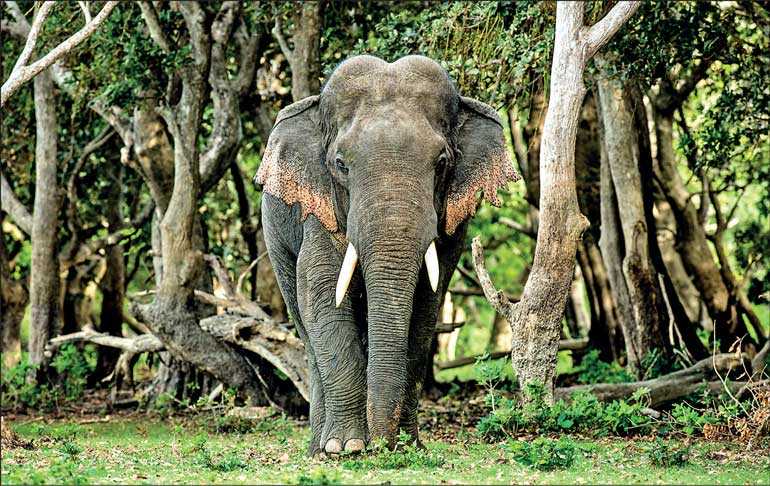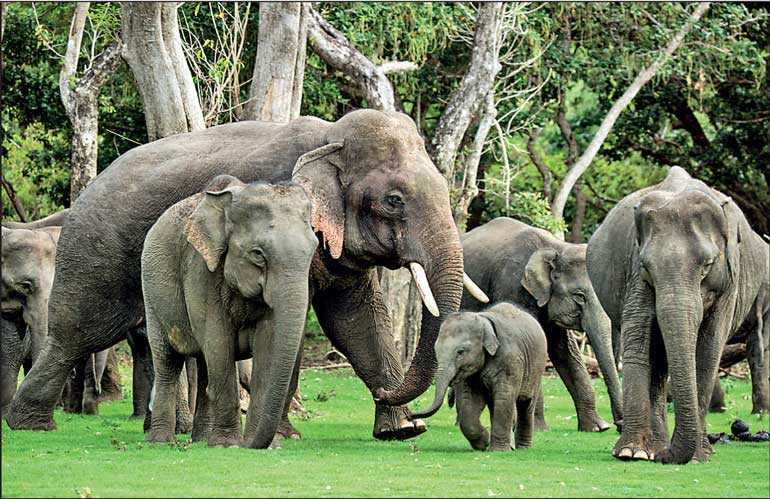Thursday Feb 19, 2026
Thursday Feb 19, 2026
Thursday, 11 March 2021 00:00 - - {{hitsCtrl.values.hits}}

Sri Lanka has made global headlines for having the worst Human-Elephant Conflict (HEC) in the world; 407 elephants were killed in 2019 and in 2020, 318 elephants were killed even when the country was in lock-down due to the COVID-19 pandemic – Pix courtesy Rajiv Welikala

By The Wildlife and Nature Protection Society
Most of Sri Lanka, the wildlife lovers, conservationists, activists and indeed the wildlife photographers who love capturing images of Sri Lanka’s stunning tuskers, are reeling from the heart-breaking news of the killing of Revatha – one of the iconic tuskers of Kala Weva.
A mighty bull elephant with a beautiful set of tusks, Revatha was a joy to observe in the wild, as evidenced by the many photographs that are flooding social media of his legendary life at Kala Weva. At 45 years of age, Revatha was in the prime of his adult life and had many more years to sire many more of his kind. Sadly his life was brought to a tragic halt by an illegal live wire erected around an illegal maize cultivation of a local villager...
Sri Lanka has made global headlines for having the worst Human-Elephant Conflict (HEC) in the world; 407 elephants were killed in 2019 and in 2020, 318 elephants were killed even when the country was in lock-down due to the COVID-19 pandemic.
The Sri Lankan Elephant (Elephas maximus maximus) has been classified as Endangered by the International Union for the Conservation of Nature (IUCN). Elephants are a keystone species, meaning they are critically important to the ecosystems they live in. Elephants bring in millions of rupees in foreign exchange revenue to the country through wildlife tourism. Despite this, the Sri Lankan Government is yet to implement any meaningful solutions to the HEC, which focus on the welfare of these iconic species.
How many more of these mighty and majestic creatures must meet their tragic death via electrocution, hakkapatas, gun-shot or snare wound or in a railway or traffic collision, before we as a nation begin to understand their worth?